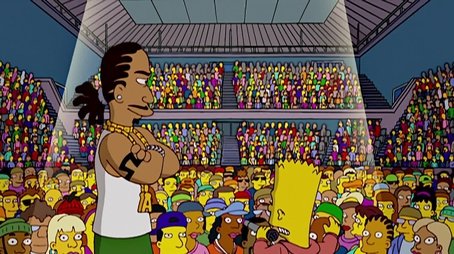
Sorry, we have not watched this yet.

Bart fakes his own kidnapping to get out of being punished for going to a rap concert, but the ruse goes too far when Milhouse's father is implicated as the kidnapper and Chief Wiggum sees this as an opportunity to make a name for himself as a competent police officer.
Sorry, we have not watched this yet.